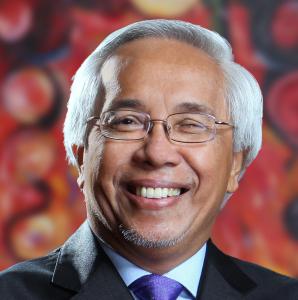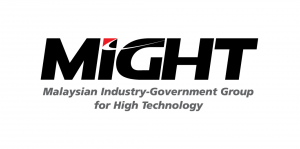Urgent need for innovation driving surge in funding, globalization of research
Funding agencies meet in Malaysia Nov. 20-21 to strategize ahead of Global Research Council 6th annual meeting, Ottawa, May 2017
The fruits of scientific research - nanotechnology, medicines and countless new materials and products - are transforming economies and society at an unprecedented and unpredictable speed and scale.
And nations are racing to keep up. UN data show world R&D investments grew from (inflation adjusted) $660 billion to almost $1.5 trillion between 1990 to 2013. Much of that growth comes from Asia, where research funding has almost quadrupled - from $167 billion to $623 billion over those 23 years.
Particularly in low- and middle-income nations, where spending on research and development has traditionally been limited, governments looking to secure economic growth and sustainability are reforming old funding agencies or creating new ones, and pouring money into them.
This energized new research ecosystem faces some major challenges, however, which will be addressed by research funding agency representatives from 17 countries at an Asia Pacific regional meeting of the Global Research Council (Nov. 20-21, Kuala Lumpur), hosted by the Malaysian Industry-Government Group for High Technology (MIGHT).
First, as research becomes an increasingly global collaborative enterprise, and with so much at stake, the efficiency and effectiveness of collaborations need to improve to maximize results.
Improving cooperation can enhance the quality of science, avoid unnecessary duplication, provide economies of scale, and address issues that can only be solved by working together.
Secondly, as funders place growing emphasis on their investment's return, how do societies manage the seemingly contentious relationship between "fundamental research," aimed at discovery of new knowledge, and "innovation," intended to generate from the new knowledge more immediate economic growth and jobs?
A recent report in the journal Nature, citing UNESCO data, says "more money than ever is being invested in research and development. Countries that previously spent little are now pumping money into science to secure their future economic growth."
"Growth in gross domestic expenditures on research and development (GERD) between 2003 and 2013 was relatively slow in the United States and Europe, where research spending is high overall. The strongest growth has been in Eastern Europe, Asia and Latin America."
Examining research and development investments as a percentage of GDP, World Bank and OECD data show the big spender nations also tend to be among the most prosperous.
The Global Research Council plays a crucial role in removing barriers to collaboration between developed and developing nations, creating standards and basic principles for appropriate peer review of research, for example. These include the transparency of the evaluation process, impartiality and confidentiality.
Other active concerns include e.g. ensuring the accuracy of data and ethical standards in research involving human subjects.
The meeting in Kuala Lumpur is one of five regional sessions designed to generate ideas for discussion at the GRC's 6th annual global conference (Ottawa, Canada, May 2017), co-organized by the Natural Sciences and Engineering Research Council of Canada (NSERC) and the Consejo Nacional de Ciencia, Tecnología e Innovación Tecnológica of Peru (CONCYTEC), in partnership with Canada's International Development Research Centre (IDRC)).
Among the goals of the GRC meeting in Malaysia: foster and accelerate collaboration across national boundaries, recognizing every nation's unique needs for economic growth, national security, and human capital development.
Participants will also discuss specific Asia Pacific challenges and identify opportunities for new and / or strengthened collaborations.
Discussion papers for the meeting say research has assumed a more "problem-based" focus over the past 20 years, involving larger teams of academic and non-academic experts from multiple disciplines. It is also being shaped by increasing openness - more public communication, data sharing and citizen engagement.
Tan Sri Zakri Abdul Hamid, Science Advisor to the Prime Minister of Malaysia, says it is no coincidence that, between 2000 and 2012, Malaysia's Gross Domestic Product per capita grew from US$ 4000 to almost $10,800 as national R&D investment rose from 0.5 to 1.13% of GDP.
And while economic headwinds due to commodity prices this year have affected the growth of R&D funding in some countries, Malaysia included, it is important for all nations to invest even more, he says.
"To meet the daunting challenges in decades to come, humanity has set and needs to achieve the Sustainable Development Goals. This requires ambitious national investments in science, technology and innovation, as well as basic science and science education and literacy.
"We need innovation to accelerate the generation of energy from renewable sources, to improve the quality of our air and to make the fullest use of our precious fresh water resources, to create strong new building materials locally, to improve and protect health and agriculture through nanotechnology, and in so many other vital areas."
"These challenges can best be met by combining the strengths of all nations and Malaysia extends its welcome and its highest support to the GRC and its efforts to maximize the effectiveness and efficiency of research collaborations and capabilities at the regional and global levels."
Says Dato' Azman Mahmud, Chief Executive Officer of the Malaysian Investment Development Authority (MIDA), a conference keynote speaker: "With the pace of economic development increasing worldwide, Malaysia aims to achieve R&D intensity of at least 2.0% by 2020, recognizing the importance of this investment to our well-being and future sustainability. R&D fuels innovation, sharpens our competitive advantage and enables us to create new industries and exploit new economic opportunities."
Says Senior Professor Dato' Dr. Khalid Yusoff, Vice-Chancellor and President, UCSI University, Chairman of the Organising Committee of the GRC Regional Meeting: "The rise of international collaboration over the past two decades is dramatically increasing the impact and importance of research, and that success in turn is inspiring even greater funding of and cooperation among scientists."
Malaysian contacts:
Nik Sufini Nik Mohamed
sufini@might.org.my
+6012-230-1003
Ani Suzila Anas
ani@might.org.my
+60-12-31-28-642
Terry Collins
Malaysian Industry-Government Group for High Technology
1-416-878-8712
email us here
Legal Disclaimer:
EIN Presswire provides this news content "as is" without warranty of any kind. We do not accept any responsibility or liability for the accuracy, content, images, videos, licenses, completeness, legality, or reliability of the information contained in this article. If you have any complaints or copyright issues related to this article, kindly contact the author above.


